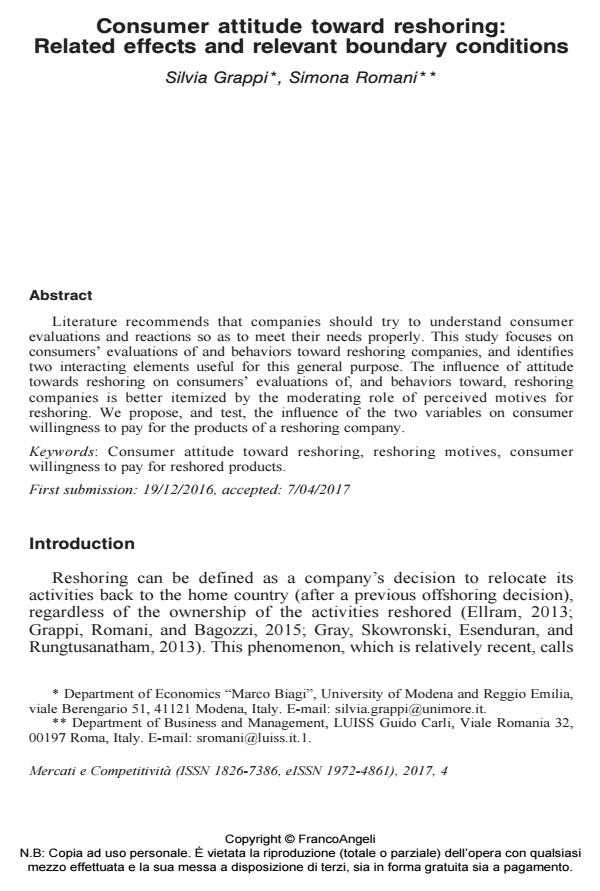Consumer attitude toward reshoring: Related effects and relevant boundary conditions
Titolo Rivista MERCATI & COMPETITIVITÀ
Autori/Curatori Silvia Grappi, Simona Romani
Anno di pubblicazione 2017 Fascicolo 2017/4
Lingua Inglese Numero pagine 15 P. 37-51 Dimensione file 95 KB
DOI 10.3280/MC2017-004003
Il DOI è il codice a barre della proprietà intellettuale: per saperne di più
clicca qui
Qui sotto puoi vedere in anteprima la prima pagina di questo articolo.
Se questo articolo ti interessa, lo puoi acquistare (e scaricare in formato pdf) seguendo le facili indicazioni per acquistare il download credit. Acquista Download Credits per scaricare questo Articolo in formato PDF

FrancoAngeli è membro della Publishers International Linking Association, Inc (PILA), associazione indipendente e non profit per facilitare (attraverso i servizi tecnologici implementati da CrossRef.org) l’accesso degli studiosi ai contenuti digitali nelle pubblicazioni professionali e scientifiche.
Literature recommends that companies should try to understand consumer evaluations and reactions so as to meet their needs properly. This study focuses on consumers’ evaluations of and behaviors toward reshoring companies, and identifies two interacting elements useful for this general purpose. The influence of attitude towards reshoring on consumers’ evaluations of, and behaviors toward, reshoring companies is better itemized by the moderating role of perceived motives for reshoring. We propose, and test, the influence of the two variables on consumer willingness to pay for the products of a reshoring company.
Parole chiave:Consumer attitude toward reshoring, reshoring motives, consumer willingness to pay for reshored products.
Silvia Grappi, Simona Romani, Consumer attitude toward reshoring: Related effects and relevant boundary conditions in "MERCATI & COMPETITIVITÀ" 4/2017, pp 37-51, DOI: 10.3280/MC2017-004003